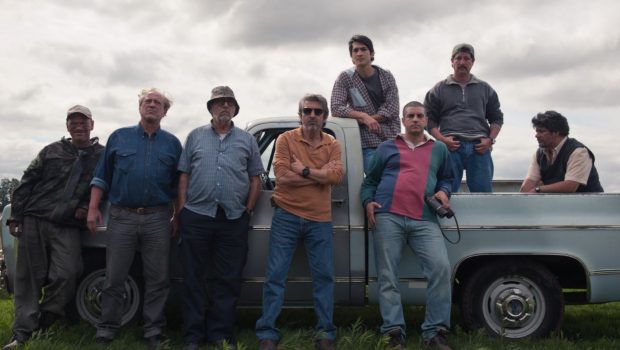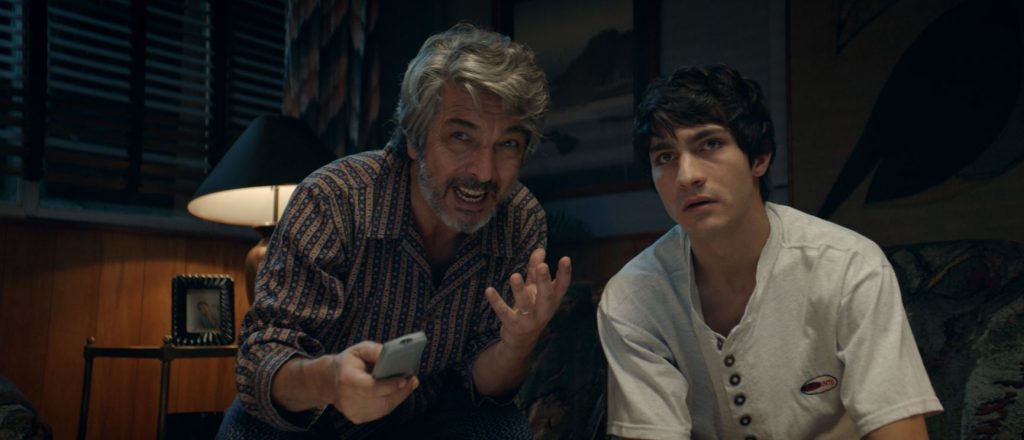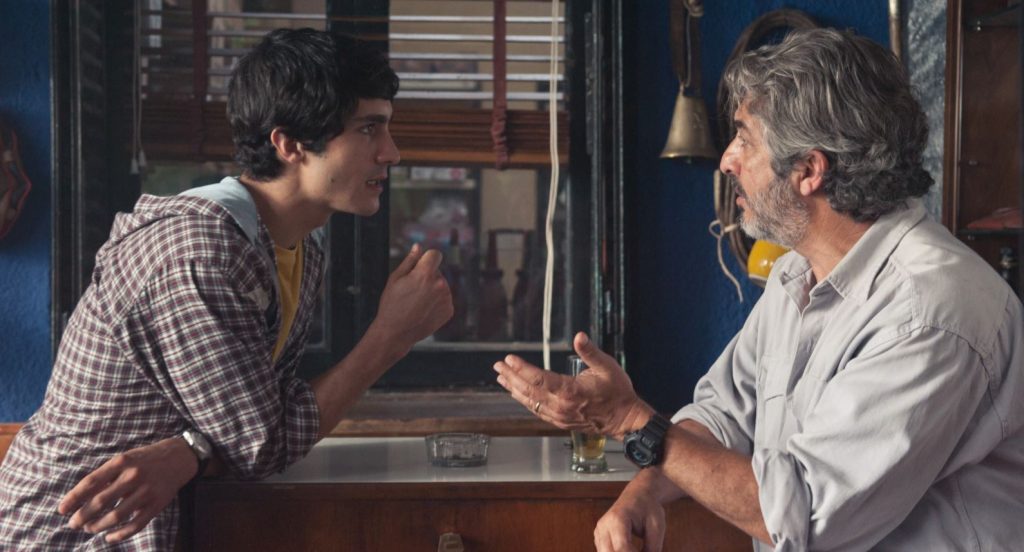Heroic Losers – Film Review
Reviewed by Damien Straker on the 4th of June 2021
Palace Cinemas presents a film by Sebastián Borensztein
Produced by Hugo Sigman, Ricardo Darín, Matías Mosteirin, Chino Darín, Federico Posternak, Leticia Cristi, Fernando Bovaira, and Simón de Santiago
Written by Sebastián Borensztein and Eduardo Sacheri based on La noche de la Usina by Eduardo Sacheri
Starring Ricardo Darín, Luis Brandoni, Chino Darín, Verónica Llinás, Daniel Aráoz, Carlos Belloso, Marco Caponi, Rita Cortese, and Andrés Parra
Music by Federico Jusid
Cinematography Rodrigo Pulpeiro
Edited by Alejandro Carrillo Penovi
Rating: M
Running Time: 117 minutes
Release Date: the 10th of June 2021
The Argentinian heist comedy Heroic Losers offers big laughs but struggles to subvert the foundations of its genre. The film commences with a highly realistic, political scenario befitting of real-life events, such as the Global Financial Crisis. Yet in its bid to make us laugh, the film’s dynamics grow increasingly broad and cartoon-like. The transition is never dull, but the sketchy characterisations and formulaic plotting prevent Losers from becoming a standout film. It is unfortunate because its heart is acutely placed. It is quietly humorous and intent on projecting working class people as courageous in fighting corrupt financial institutions and sleazy bureaucrats.
Eduardo Sacheri’s novel has been adapted by writer-director Sebastián Borensztein. The story is set in 2001 and follows a man named Fermín (The Secret in Their Eyes’ Ricardo Darín). He is seeking to form a collective with his local community in the town of Villa Alsina. The process involves pooling everyone’s money together to develop an agricultural centre. The town is full of different working‑class oddballs, such as a man who uses dynamite for fishing and another who is an elderly mechanic. Fermín and his wife, Lidia (Verónica Llinás), are stunned by the community’s willingness to trust them with their finances. However, Fermín fatally listens to a banker who convinces him to take the collective’s money from a safety deposit box and put it in an account.
The change has disastrous consequences after it is announced on television that the public is unable to withdraw large sums of money due to an economic crisis. It is also revealed after the mass panic that a shonky lawyer, Fortunato Manzi (Andrés Parra), has stolen Fermín’s money and hidden it in an electronic vault on his farming property. Under the stress of being blamed for losing everyone’s finances, Fermín is injured in a car accident. His wife also dies from injuries sustained in the crash. Buoyed by the encouragement of his son, Rodrigo (Chino Darín), Fermín vows to draw the community together and return the money by breaking into Manzi’s vault.
Borensztein’s script starts brilliantly but the predictable storyline limits the production’s depth. The early scenes effectively capture the dread of handling other people’s finances. The doom permeates as Fermín receives increasingly large contributions and positive interest in the centre steadily grows. Greed is prevalent throughout the entire story. As the money increases, it is ominous that Fermín will either lose the funds or that he and his wife might take it for themselves. The bank complications are also appropriately grounded because the crisis recalls the GFC and the Greek debt crisis where people struggled to withdraw money from their accounts.
A misstep is the amount of time Borensztein dedicates to dramatising the vault’s security. When someone crosses the hatch’s wire fencing, an alarm is triggered. Manzi then receives a call and races to the property each time to check that everything is secure. The gag is funny the first few times but laboured. For example, much of the second act is dedicated to Fermín undermining the security and purposely ensuring the alarm is continuously triggered. In a rage, Manzi threatens his security team with a gun and then disables the alarm system. The heist itself is straightforward and thoroughly researched, but an extra twist would not have gone astray. There is one surprise at the end that would have hit harder if the side characters were developed stronger.
Manzi is a one-dimensional caricature representing corporate greed but with no unique traits. Most of the community are broadly painted too and lack distinction aside from their work roles. There are still funny scenes, such as when a man covers himself in warpaint only to be told no one will see him. In another moment, two idiots ring each other while standing side by side. There is also a quietly funny subplot where Rodrigo pretends to be a gardener to spy on Manzi. Yet Rodrigo is scrutinised by Manzi’s beautiful secretary, Florencia (Ailín Zaninovich). It is humorous seeing him pretend to know about plants, but the pending romance holds no weight. It is, like the rest of the film, unsurprising and simply reinforces the premise that losers sometimes triumph.
Borensztein’s work behind the camera is imbalanced. The first half of Losers is grounded and involving, especially when building the suspense and dramatising Fermín’s depression after Lidia dies. On the back of Ricardo Darín’s humane expression of grief, there is a foundation for a solid revenge drama pitched against the backdrop of corporate greed. Instead, the humour continues to broaden, which dilutes the realism and character nuances. The plot schematics also grow transparent in the second half, particularly when Fermín declares the heist is over only to reappear before the operation begins. This is an example of how Borensztein follows the cliches of the heist genre rather than unexpectedly twisting the narrative.
Heroic Losers’ aspirations and humour struggle to overcome its unsurprising script and generic heist structure. Still, the film is mostly enjoyable because of the silly comedy and Ricardo Darín’s wounded performance. Borensztein himself is determined to champion working class people and counter greed and the institutions seeking to ruin their lives. Ultimately, it is impossible to dismiss the town’s cause. After the tension of the early scenes, there are sizable laughs, particularly when something explosive occurs during the operation. However, the film would have been deeper and more memorable if Borensztein was less loyal to countless other heist films and instead enriched the side characters. It is funny and undemanding but not an outright winner.
Summary: The film is funny and undemanding but not an outright winner.









